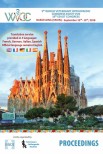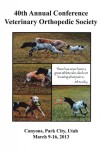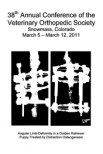The objective of this study was to compare nucleated cell fractions and mesenchymal stromal cells (MSCs) from adipose tissue to bone marrow processed by a point-of-care device that are available for immediate implantation. A paired comparison using adipose and bone marrow from five horses was done. The number of nucleated cells, viability, total adherent cells on day 6 of culture and colony-forming unit fibroblasts (CFU-Fs) were determined. Gene expression for markers of stemness, adipogenic, chondrogenic, osteogenic lineage, and collagen formation was measured in total RNA isolated from adherent adipose and bone marrow cells. Day 6 adherent adipose-derived MSC was frozen briefly, whereas day 6 adherent bone marrow–derived MSC was passaged two additional times to obtain adequate cell numbers for chondrogenic, osteogenic, and adipogenic cell differentiation assays. The total cell count per gram was significantly greater for bone marrow, whereas total adherent cells per gram and the CFU-F per million nucleated cells on day 6 were significantly greater for the adipose. In undifferentiated adherent cells, relative gene expression for CD34, adipogenic, and chondrogenic markers and collagen II was significantly lower in the adipose-derived cells. Conversely, expression of collagen I was significantly higher in the undifferentiated adipose-derived cells. Cell density and total RNA were higher in differentiated adipogenic and osteogenic cultures of adipose cells and in chondrogenic cultures of bone marrow cells. This cell preparation method provides a stromal vascular fraction with a large proportion of multipotent MSCs. There are differences in the cells obtained from the two sources. This method can provide an adequate number of multipotent cells from adipose tissue for immediate implantation.
Characterization of Nucleated Cells From Equine Adipose Tissue and Bone Marrow Aspirate Processed for Point-of-Care Use
Date
September 2014
Journal
The Veterinary Journal
Volume
34
Number
9
Pages
1118-1127









